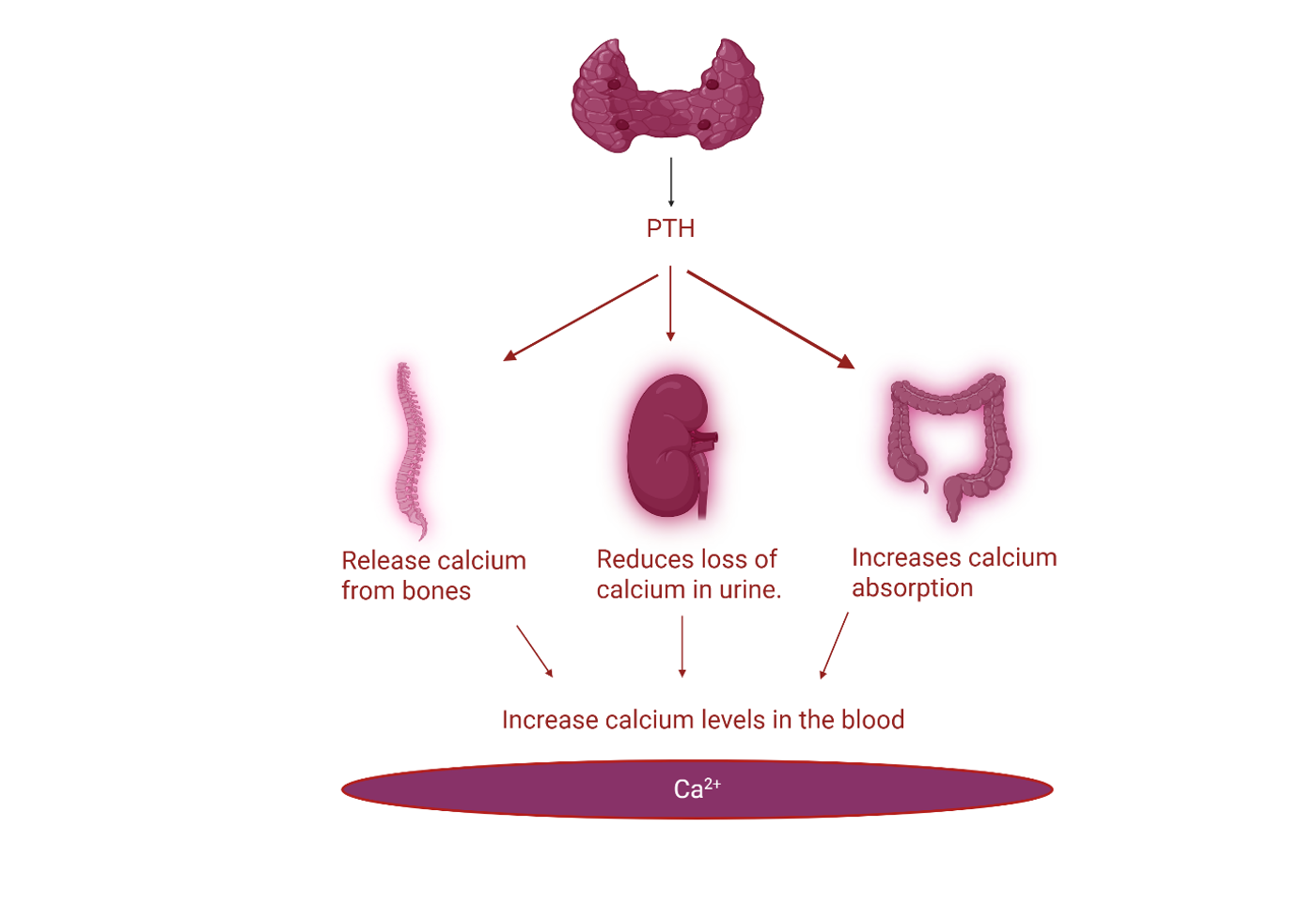Alternative names for parathyroid hormone
PTH; parathormone; parathyrin
What is parathyroid hormone?
The parathyroid glands are four small glands in the neck, behind the thyroid. They make a hormone called parathyroid hormone that helps maintain the calcium in the normal range in the body.
It does this through its actions on the kidneys, bones and intestine:
- Bones – parathyroid hormone (PTH) stimulates the release of calcium into the bloodstream from large calcium stores in the bones. This increases bone resorption (break down) and decreases the formation of new bone.
- Kidneys – parathyroid hormone reduces loss of calcium in urine. Parathyroid hormone also stimulates the production of active vitamin D in the kidneys.
- Intestine – parathyroid hormone indirectly increases calcium absorption from food in the intestine, via its action to activate vitamin D.

How is parathyroid hormone controlled?
Parathyroid hormone is mainly controlled by the negative feedback of calcium levels in the blood to the parathyroid glands. Low calcium levels in the blood stimulate parathyroid hormone secretion, whereas high calcium levels in the blood prevent the release of parathyroid hormone.
What happens if I have too much parathyroid hormone?
A primary problem in the parathyroid glands, producing too much parathyroid hormone causes raised calcium levels in the blood (hypercalcaemia) and this is referred to as primary hyperparathyroidism. There is a similar but much rarer condition called tertiary hyperparathyroidism that causes hypercalcaemia due to excess parathyroid hormone production on the back drop of all four glands being overactive. Secondary hyperparathyroidism occurs in response to low blood calcium levels and is caused by other mechanisms, for example, kidney disease and vitamin D deficiency.
Mild primary hyperparathyroidism often causes few if any symptoms and is frequently diagnosed by finding a high calcium concentration on a routine blood test One might not notice symptoms from high calcium at first, or they may seem unrelated. Still, it can cause complications like osteoporosis and kidney stones.
Treatment may be by surgical removal of the affected gland(s) (parathyroidectomy). Further information on the symptoms for each condition can be found in the individual articles.
What happens if I have too little parathyroid hormone?
Too little parathyroid hormone or hypoparathyroidism, is a rare medical condition. It can result in low levels of calcium in the blood (hypocalcaemia). It is usually treated medically with oral calcium and vitamin D analogues but the availability of parathyroid hormone replacement therapy may change the approach to treatment for some patients.

